Tryggve Mettinger (born 1940 in Helsingborg) [1] is a retired professor of Hebrew Bible, at Lund University, Sweden, where he taught from 1978 to 2003. [2]
Tryggve Mettinger (born 1940 in Helsingborg) [1] is a retired professor of Hebrew Bible, at Lund University, Sweden, where he taught from 1978 to 2003. [2]
Between 1960 and 1978, Mettinger studied various subjects, such as Semitics, Egyptology, Assyriology, and Comparative Literature, at the Universities of Lund and Copenhagen. He later earned his doctorate in 1971, worked as docent (Reader) of Old Testament exegesis, and subsequently was appointed professor at Lund University, a capacity in which he served until his retirement in 2003. [1] He has had visiting professor positions in the U.S., Israel, the Netherlands, and South Africa. [2] He was awarded the Thuréus prize (humanities) 2008 by the Kungl. Vetenskaps-Societeten in Uppsala. [2] Between 1978 and 2003, he was one of the editors of the monograph series Coniectanea Biblica, Old Testament Series. Mettinger served as an expert consultant for the official Swedish Bible translation committee, whose work led to the creation of the Bibel 2000 translation. [3] He is a member of various learned societies, such as the Royal Swedish Academy of Letters, History and Antiquities, Stockholm [4] and the (British) Society for Old Testament Study (honorary member). [1] He has also been a guest lecturer at many universities and delivered papers at many conferences devoted to Old Testament study, Assyriology and Comparative Religion. He has described his epistemological attitude towards studying religious texts using the following words: "I try to draw a line [of demarcation] between what I believe I know as a scholar and what I know I believe as a Christian." [5]
In 2011, the Festschrift Enigmas and Images was published in his honor. [6] That volume also includes an almost complete bibliography of Mettinger's publications up to that point. Previously, another Festschrift dedicated to him was also published as a volume of Svensk Exegetisk Årsbok. [7] In 2015, a volume collecting a number of his scholarly essays was published by Eisenbrauns under the title Reports from a Scholar's Life; the book also includes an English language version of Mettinger's farewell lecture when leaving his professorship at Lund University (a lecture that has given the book its title) — summarizing much of his scholarly career. [8] The lecture can also be read online. [9]
Festschrift: Göran Eidevall and Blazenka Scheuer (ed.), Enigmas and Images. Studies in Honor of Tryggve N.D. Mettinger (2011)
External link: Mettinger's website - www.tryggvemettinger.com

Yahweh was an ancient Levantine deity, and national god of the Israelite kingdoms of Israel and Judah. Though no consensus exists regarding the deity's origins, scholars generally contend that Yahweh emerged as a "divine warrior" associated first with Seir, Edom, Paran and Teman, and later with Canaan. The origins of his worship reach at least to the early Iron Age, and likely to the Late Bronze Age, if not somewhat earlier.

Gunnar Valfrid Jarring was a Swedish diplomat and Turkologist.
James Barr was a Scottish Old Testament scholar, known for his critique of the notion that the vocabulary and structure of the Hebrew language may reflect a particular theological mindset. At the University of Oxford, he was the Oriel Professor of the Interpretation of Holy Scripture from 1976 to 1978, and the Regius Professor of Hebrew from 1978 to 1989.
David Daube was the twentieth century's preeminent scholar of ancient law. He combined a familiarity with many legal systems, particularly Roman law and biblical law, with an expertise in Greek, Roman, Jewish, and Christian literature, and used literary, religious, and legal texts to illuminate each other and, among other things, to "transform the position of Roman law" and to launch a "revolution" or "near revolution" in New Testament studies.
Bruce K. Waltke is an American Reformed evangelical professor of Old Testament and Hebrew. He has held professorships in the Old Testament at Dallas Theological Seminary, Regent College in Vancouver, British Columbia, Westminster Theological Seminary in Philadelphia, Pennsylvania, Reformed Theological Seminary in Orlando, Florida, and Knox Theological Seminary in Ft. Lauderdale, Florida.
Sir Godfrey Rolles Driver, known as G. R. Driver, was an English Orientalist noted for his studies of Semitic languages and Assyriology. He is considered the "most distinguished British Hebraist of the late nineteenth and early twentieth centuries".
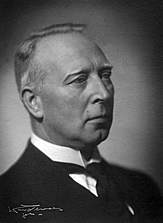
Sigmund Olaf Plytt Mowinckel was a Norwegian professor, theologian and biblical scholar. He was noted for his research into the practice of religious worship in ancient Israel.

The origins of Judaism lie in Bronze Age polytheistic Canaanite religion. It also syncretized elements of other Semitic religions such as Babylonian religion, which is reflected in the early prophetic books of the Hebrew Bible.
Michael D. Coogan is lecturer on Hebrew Bible/Old Testament at Harvard Divinity School, Director of Publications for the Harvard Semitic Museum, editor-in-chief of Oxford Biblical Studies Online, and professor emeritus of religious studies at Stonehill College. He has also taught at Fordham University, Boston College, Wellesley College, and the University of Waterloo (Ontario). Coogan has also participated in and directed archaeological excavations in Israel, Jordan, Cyprus, and Egypt, and has lectured widely.
Philip R. Davies (1945–2018) was a British biblical scholar. He was Professor Emeritus of biblical studies at the University of Sheffield, England. In the late 1990s, he was the Director for the Centre for the Study of the Dead Sea Scrolls. He was also the publisher and editorial director of Sheffield Academic Press. He was the author of books and articles on ancient Israelite history and religion, including Scribes and Schools (1998) in the Library of Ancient Israel. Davies promoted the theory of cultural memory. He and David Clines edited the Journal for the Study of the Old Testament and its Supplement Series.
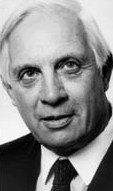
Donald John Wiseman was a biblical scholar, archaeologist and Assyriologist. He was Professor of Assyriology at the University of London from 1961 to 1982.
"I Am that I Am" is a common English translation of the Hebrew phrase אֶהְיֶה אֲשֶׁר אֶהְיֶה – also "I am who (I) am", "I will become what I choose to become", "I am what I am", "I will be what I will be", "I create what(ever) I create", or "I am the Existing One". The traditional English translation within Judaism favours "I will be what I will be" because the imperfective aspect in Modern Hebrew is normally used for future tense and there is no present tense with direct object of the verb "to be" in the Hebrew language.
James L. Crenshaw is the Robert L. Flowers Professor of the Old Testament at Duke University Divinity School. He is one of the world’s leading scholars in Old Testament Wisdom literature. He proposes that much of Proverbs was brought together at a time well after Solomon. He has been described as "a highly respected scholar" and an "excellent teacher".
Robert Patterson Gordon is a British scholar who was the Regius Professor of Hebrew at the University of Cambridge from 1995 to 2012.

Hermann Spieckermann is a German biblical scholar, historian of ancient Near Eastern religion, and Protestant theologian. He currently holds a chair for Old Testament, or Hebrew Bible, in the Faculty of Theology at the University of Göttingen, in Germany. Through extensive authorial, editorial, and organizational undertakings, Spieckermann has exerted considerable influence on Hebrew Bible research.
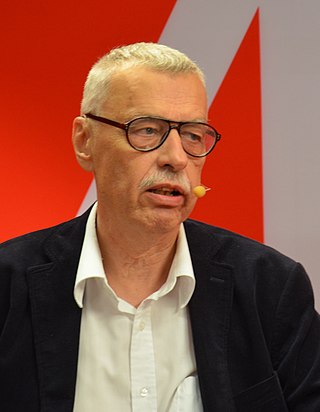
Per Svante Gudmund Nordin is a Swedish historian of ideas and author. He is a professor of history of ideas at Lund University.
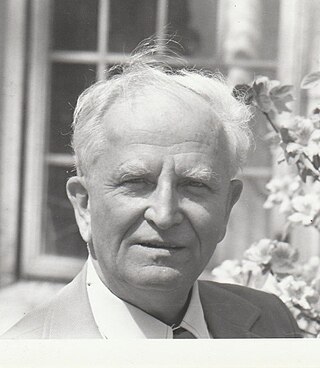
Samuel Lucien Terrien was a French-American Protestant theologian and biblical scholar. A professor at Union Theological Seminary for thirty-six years, he is known for his biblical commentary, particularly for his scholarly contributions to the study of Job and the Psalms in the Old Testament and for his book, The Elusive Presence (1978), in which he presented a new theology of the presence and absence of God written largely in the context of cult, not covenant. It incorporated both Old and New Testaments in a broader ecumenical context and introduced a way for future theologians to ask how the presence of God is experienced by engaging the wisdom traditions to explore how ‘empirical observation can testify to a divine presence in human life just as visionary experiences can.'
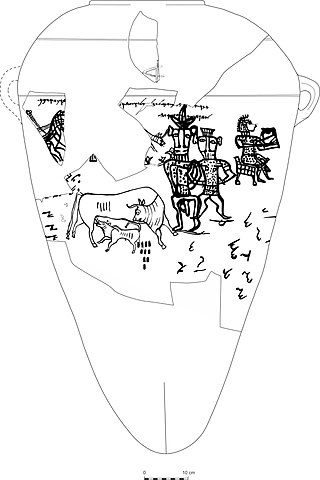
Yahwism is the name given by modern scholars to the religion of ancient Israel and Judah. Yahwism was essentially polytheistic, with a plethora of gods and goddesses. Heading the pantheon was Yahweh, the national god of the Israelite kingdoms of Israel and Judah, with his consort, the goddess Asherah, and second-tier gods and goddesses such as Baal, Shamash, Yarikh, Mot, and Astarte, each of whom had their own priests and prophets and numbered royalty among their devotees.
Patrick William Skehan was an American Old Testament semitic scholar.
Julian Morgenstern was an American rabbi, Bible scholar, and president of Hebrew Union College.